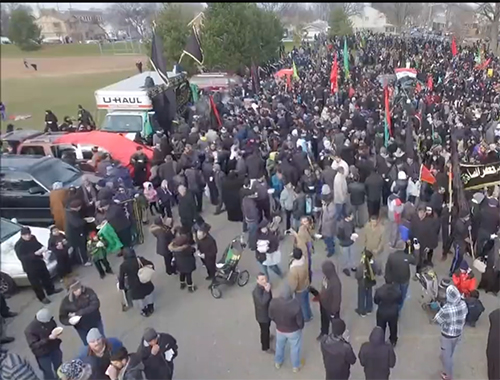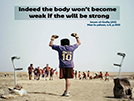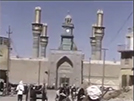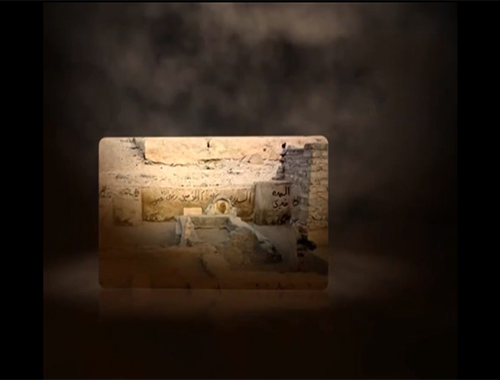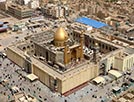
In order for us to understand the significance and philosophy of mourning for Imam Hussein (A.S), it is necessary to take notice of the following points:
1. The Holy Quran has emphasized through many different verses on maintaining and reviving lofty virtues and traits of great men and noble religious leaders.
2. The great Shia Imams, peace be upon them, have encouraged us to keep the memory of the event of Karbala alive through different ways namely, holding mourning ceremonies, weeping and making others weep, reciting elegies and visiting the grave of the Chief of the Martyrs, Imam Hussein (A.S).
3. Muharram is the month of the victory of blood over sword. The event of Ashura has been and is inspiring nations and people all over the world to fight tyrant and unjust rulers. Therefore, remembering the event of Ashura and the suffering of Imam Hussein (A.S) and his family plays a key role in spreading his message across the world.
4. Mourning is a key element of unity and different nations' secret of success over the history. Most of the revolutions of the world have been inspired or in fact originated from the lessons learned from the epic of Ashura. An example of it is the liberation of the Indian Sub-continent from the English colonial rule. Hence, therefore, it can be said that mourning for Imam Hussein (A.S) has profuse benefits for Muslim Ummah including dignity, pride, maintenance of Islamic and religious culture and many more which on the whole indicate the importance of this great event.
The Shia Imams (A.S) and Different Ways of Mourning for Imam Hussein (A.S):
A) Holding Mourning Ceremonies:
One of the methods that the Imams used to keep the memory of the rise of Ashura alive was arranging gatherings for crying and mourning and making others cry for the tragic incidents that took place in Karbala and reminding people of those incidents on appropriate occasions.
Imam Sajjad would constantly cry and mourn for what had taken place on the day of Ashura during the years he was the Imam of the Ummah. He cried so much to the extent that he was known as and called one of the "Bakka’een" (those who cried very much). [Wasa’elul-Shia, vol. 2, pg. 922.]
Alqame Hadrami relates that Imam Baqir (A.S) would gather people in his house on the day of Ashura to cry and mourn, and the Imam himself would cry for his grandfather. There was no Taqiyyah involved and he would tell those in the house to cry for Imam Hossein and to express their condolences to each other on the day of his martyrdom. [Wasa’elul-Shia, vol. 2, pg. 398.]
On one occasion Imam Sadiq (A.S) told Dawood Ruqi: "I have never drunk cold water without remembering Imam Hossein." [Amali (Saduq), pg. 142.]
It is narrated in a hadith that Imam Reza (A.S) said: "When the month of Muharram would arrive no one would see my father (Imam Kazim) smile and sadness and sorrow would take over him until the day of Ashura. The tenth day of Muharram was the day of sorrow and sadness and tragedy and he would say: Today is the day in which Imam Hossein was martyred." [Mafatihul-Jinan, Sheikh Abbas Qummi, the section on the rituals and supplications of Muharram.]
B) Visitation of Imam Hussein's Grave Encouraged:
Commemorating the nobles and religious leaders and visiting the graves of the heroes have been a good custom, one that has been practiced by various nations. Among them, the chief of the martyrs and leader of freemen, Imam Hussein (A.S) is like a glamorous sun whose name and memory should be revived and remembered befittingly. There are so many sayings from the infallible leaders about the significance of visiting the grave of Imam Hussein (A.S) in Karbala. In fact, it can be said that those noble and divine leaders took advantage of every opportunity to encourage people to visit the luminous grave of the Chief of Martyrs (A.S). It was as though the Imams were committed to persuade people to visit the tomb of Imam Hussein (A.S) in Karbala. Not only did this create spiritual and intellectual union with the Imam but it was also a kind of campaign against the tyrant and the unjust rulers as it has always been and is the same even today. There are different narrations from the Infallibles of which we shall mention only one:
Imam Sadiq (A.S) said: "One who visits his shrine (of Imam Hussein) with eagerness and out of affection for the Holy Prophet (P.B.U.H&H.P), Zahra (S.A) and the commander of the faithful (A.S), will be seated by Allah on the tablecloth of Paradise. He will dine with these holy personalities (Ahlulbayt (A.S)), while the others will be absorbed in the accounting of deeds." [Biharul-Anwar, vol. 24, pg. 284.]
Source: Islam quest.net
 Imam Kazim (A.S) - Islam Guidance
Imam Kazim (A.S) - Islam Guidance